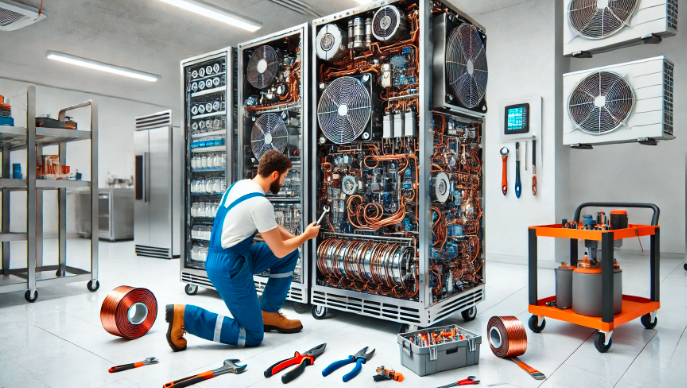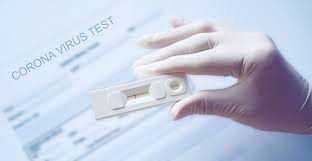
Introduction to Commercial Refrigeration Repair
Commercial refrigeration repair is a critical service for businesses that rely on cooling systems to store perishable goods. From restaurants and grocery stores to warehouses and pharmaceutical facilities, maintaining optimal refrigeration is essential to ensure product safety, reduce energy costs, and avoid unexpected downtime. Commercial refrigeration units are designed to operate continuously, but like any mechanical system, they require regular care and occasional repairs to function efficiently.
Understanding Commercial Refrigeration Systems
Commercial refrigeration systems are complex machines designed to maintain specific temperatures to preserve goods. To understand repairs, it helps to know the basic components and their functions:
- Compressor: The heart of the system, compressing refrigerant gas to high pressure and temperature.
- Condenser: A coil system where refrigerant releases heat and becomes liquid.
- Evaporator: Absorbs heat from the refrigerated space, cooling it.
- Refrigerants: Specialized fluids like R134a or R404a that absorb and transfer heat.
The refrigeration cycle involves a continuous process of compression, condensation, expansion, and evaporation, ensuring consistent cooling performance.
Common Problems in Commercial Refrigeration
Even the most robust refrigeration units can face issues over time. Common problems include:
- Temperature Fluctuations: Often caused by faulty thermostats or dirty condenser coils.
- Refrigerant Leaks: Leading to poor cooling performance and higher energy bills.
- Ice Build-Up in Evaporators: Usually a sign of inadequate airflow or malfunctioning defrost systems.
- Compressor Malfunctions: Can result in a total system breakdown.
- Electrical Issues: Problems with wiring, fuses, or circuit boards can disrupt operation.
- Door Seal Problems: Damaged gaskets allow warm air to enter, straining the system.
Signs Your Commercial Refrigeration System Needs Repair
Recognizing early warning signs can prevent major breakdowns. Look out for:
- Increased Energy Bills: A struggling system consumes more power.
- Inconsistent Cooling: Hot or cold spots in the unit indicate malfunction.
- Strange Noises: Buzzing, clanking, or hissing sounds may suggest mechanical issues.
- Water Leaks: Caused by clogged drain lines or faulty seals.
- Unpleasant Odors: Indicate mold growth or refrigerant leaks.
Preventive Maintenance for Refrigeration Systems
Regular maintenance is key to minimizing the need for repairs. Essential maintenance tasks include:
- Cleaning Coils: Dirty coils reduce cooling efficiency.
- Checking Refrigerant Levels: Ensure proper levels to avoid strain on the compressor.
- Inspecting Electrical Connections: Prevents potential short circuits.
- Testing Controls: Ensures thermostats and sensors function accurately.
- Checking Door Seals: Replacing worn gaskets prevents energy loss.
Suggested Maintenance Schedule:
| Task | Frequency |
|---|---|
| Clean condenser coils | Monthly |
| Check refrigerant levels | Quarterly |
| Inspect electrical wiring | Semi-annually |
| Replace door gaskets | Annually |
Step-by-Step Guide to Diagnosing Issues
Diagnosing problems in commercial refrigeration systems requires a methodical approach:
- Identify Symptoms: Note any irregularities like noise, leaks, or temperature issues.
- Gather Tools: Use a multimeter, pressure gauge, and infrared thermometer.
- Test Components:
- Check the compressor’s start and run functions.
- Measure refrigerant pressure using a manifold gauge.
- Inspect wiring for loose or damaged connections.
When to Call a Professional Repair Service
While some minor maintenance tasks can be handled in-house, professional technicians should address complex repairs. They have the expertise and certifications to handle refrigerants safely, comply with environmental regulations, and provide long-lasting solutions. If your system shows persistent issues or major failures, contacting a professional ensures reliable repair and minimizes downtime.
Cost of Commercial Refrigeration Repair
Repair costs vary depending on factors like unit size, problem severity, and replacement part availability. For instance:
- Minor Repairs: Cleaning coils or replacing door seals may cost $100-$300.
- Moderate Repairs: Fixing refrigerant leaks or replacing thermostats can range from $300-$800.
- Major Repairs: Replacing compressors or evaporator coils might cost $1,000 or more.
Investing in regular maintenance reduces the likelihood of expensive repairs and extends the lifespan of your equipment.
Choosing the Right Commercial Refrigeration Repair Service
Selecting a reliable repair service ensures quality work and peace of mind. Look for:
- Certifications: Technicians should have EPA certification and extensive experience.
- Emergency Services: Quick response during breakdowns can save your inventory.
- Warranty: A good service provider offers warranties on parts and labor.
- Transparent Pricing: Ensure there are no hidden charges.
Ask questions about their experience with your specific type of unit and request references to verify their reliability.
Advancements in Commercial Refrigeration Technology
Modern refrigeration systems are evolving to be more energy-efficient and eco-friendly. Key advancements include:
- Smart Refrigeration Systems: IoT-enabled systems allow remote monitoring and diagnostics.
- Eco-Friendly Refrigerants: New refrigerants like R290 (propane) reduce environmental impact.
- Energy-Efficient Models: Use advanced compressors and insulation to lower power consumption.
Conclusion
Commercial refrigeration repair is an essential service that ensures your cooling systems function efficiently, saving energy and protecting your inventory. Regular maintenance, early detection of issues, and hiring qualified professionals can prevent costly repairs and extend the life of your equipment. By staying informed about advancements in technology, you can optimize your refrigeration systems for better performance and sustainability.
FAQs
1. How often should I service my refrigeration unit? Regular servicing should be done quarterly, with comprehensive maintenance at least once a year.
2. Can I fix refrigerant leaks myself? Refrigerant leaks require specialized tools and EPA-certified technicians to handle safely.
3. What is the average lifespan of a commercial refrigeration system? With proper maintenance, most systems last 10-15 years.
Related Articles
The Ultimate Guide to Google Pixel 9 Case Sonic Options
Comprehensive Guide to the i2R-8 CNC Machine: Features, Performance, and Benefits
Atocha Gold Bar Replica: A Detailed Guide to History, Craftsmanship, and Collecting





